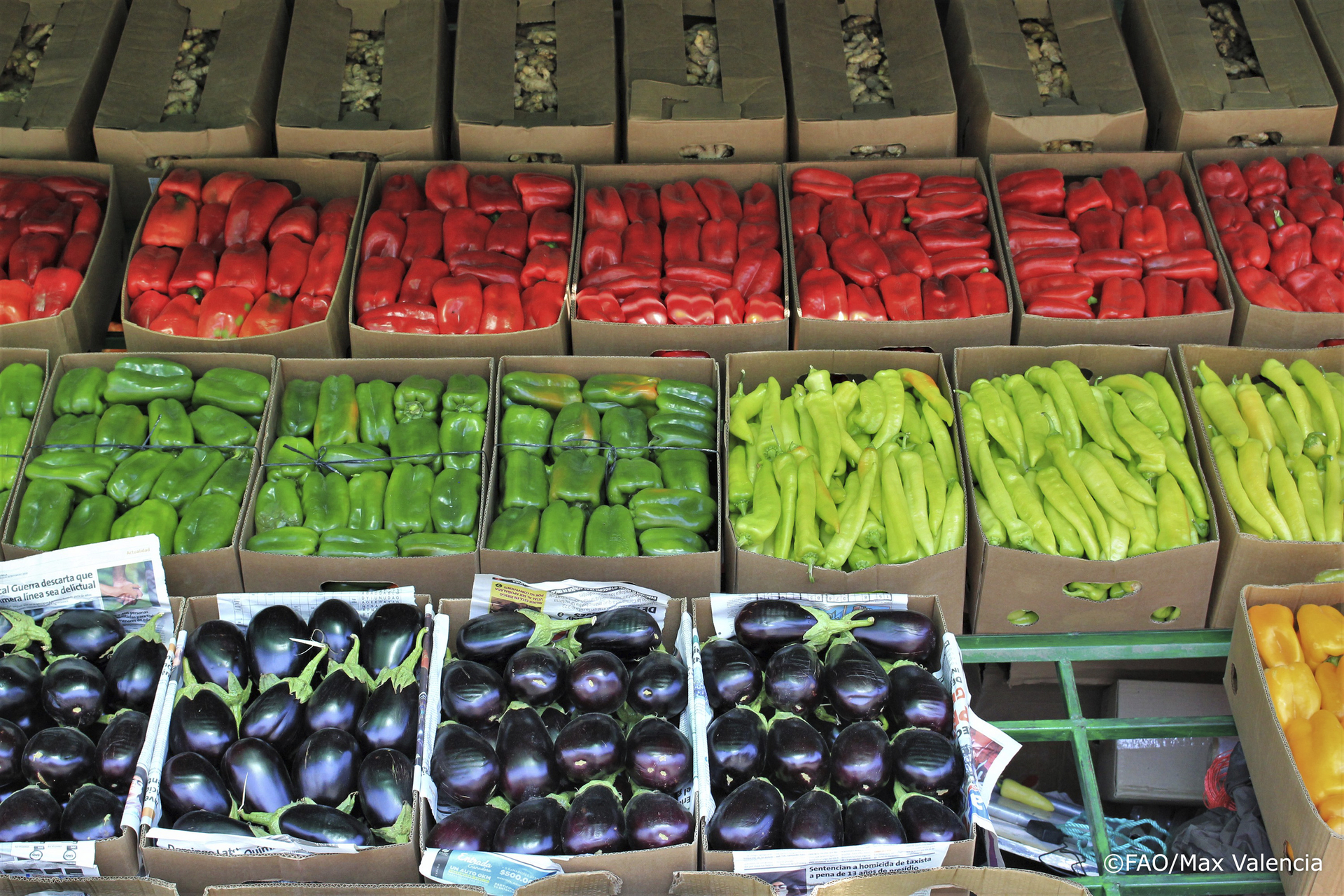November 27, 2025 | 20:51 GMT +7
November 27, 2025 | 20:51 GMT +7
Hotline: 0913.378.918
November 27, 2025 | 20:51 GMT +7
Hotline: 0913.378.918

A wholesale vegetable market in Chile. Photo: FAO/Max Valencia
Food standards save lives by playing a crucial role in preventing food borne illnesses – that was the main message at a high-level hybrid event organised by the Food and Agriculture Organization of the United Nations (FAO) and the World Health Organization (WHO) to celebrate the fifth edition of World Food Safety Day.
More than 1 in 10 people fall sick each year from contaminated food, and 420,000 die. The young and the vulnerable are disproportionately affected by the 200 different foodborne diseases that result from unsafe food, most of which are preventable.
The event was opened by the Directors-General of FAO, QU Dongyu, and WHO, Tedros Adhanom Ghebreyesus, and brought together ministers and experts to discuss the use and impact of Codex standards and the role of science in setting food safety standards and transforming our agrifood systems to ensure sufficient, safe, nutritious, and sustainably produced food for every person.
Codex standards
The theme of this year’s event was chosen to coincide with the 60th anniversary of the Codex Alimentarius (Latin for food code) Commission, established by FAO and WHO, that sets international standards for food safety and quality, to protect consumer health and promote fair practices in food trade.
“We need a common understanding on the identity, quality, and safety of our food. The FAO/WHO Codex Alimentarius Commission has been building such a food code,” QU Dongyu said, addressing the audience virtually.
“FAO recognizes the crucial role of food standards to ensure food safety, to help protect human health, and to facilitate fair practices in food trade, especially as food trade continues to grow. Food can only be safe if every person involved in its production, distribution and preparation ensures its safety.”
The Codex Alimentarius has an impact on everyone – from consumers, food producers and processors to national food control agencies. Codex is also the World Trade Organization’s (WTO) benchmark standards for food safety.
Through the Codex Secretariat, FAO and WHO provide the 189 Members who are part of it with science-based safety standards, like those for food additives, pesticides residues or guidelines for dealing with foodborne antimicrobial resistance.
WHO Director-General, Tedros Adhanom Ghebreyesus, who recorded a video message for the occasion reiterated his organization’s commitment to working with FAO to make sure everybody consumes safe and healthy food.
Expert panels
The work done by Codex and the difference it is making on the ground was highlighted during a high-level panel moderated by FAO’s Deputy Director-General, Maria Helena Semedo. Francisco Gamboa Soto, Minister for Economy, Industry and Commerce of Costa Rica; Enio Civici, Deputy Minister for Agriculture of Albania and José Emilio Esteban, Undersecretary for Food Safety, Department of Agriculture of the, United States of America participated in the panel virtually to describe the impact of Codex food standards in their countries.
Corinna Hawkes, FAO’s Director of Food Systems and Food Safety Division, moderated a second expert panel on the role science plays in creating these standards and the impact they have on agrifood systems transformation.
Also, to mark World Food Safety Day 2023, FAO launched a toolbox designed to help all those operating in the food sector adhere to international food hygiene standards. The toolbox is based on Codex standards and provides a set of guidelines and norms via an FAO website to help those in the food business better engage with local food safety authorities to produce, process and distribute safe food.
FAO and WHO cover a range of issues to support global food safety and protect consumers’ health. FAO addresses food safety issues along the food production chain, while WHO oversees and maintains strong relationships with the public health sector.
World Food Safety Day has been celebrated annually by the United Nations since 2019 and aims to draw attention and inspire action to help prevent, detect, and manage foodborne risks, contributing to food security, human health, and sustainable development.
(FAO.org)

(VAN) A new study reveals how the simultaneous effects of ocean acidification, salinity and loss of oxygen are making the world more fragile.

(VAN) Hopes are growing that the creation of the first 3D turkey gut model could be a turning point in the battle against the virulent blackhead disease.

(VAN) Tyson, America’s biggest meat supplier, plans to shutter one of its largest beef processing plants as the industry continues to struggle with low cattle supplies and political pressure from Washington.

(VAN) New FAO study shows how digital solutions are empowering farmers and fishers to prevent losses and build resilient agrifood systems.

(VAN) Brazil's COP30 presidency pushed through a compromise climate deal on Saturday that would boost finance for poor nations coping with global warming but that omitted any mention of the fossil fuels driving it.

(VAN) Poultry farmers in the UK have been warned that they could face one of the worst winters yet for bird flu.

(VAN) Prices of main-crop paddy have risen sharply, with jasmine rice hitting 16,100 baht per tonne — the highest level in years.